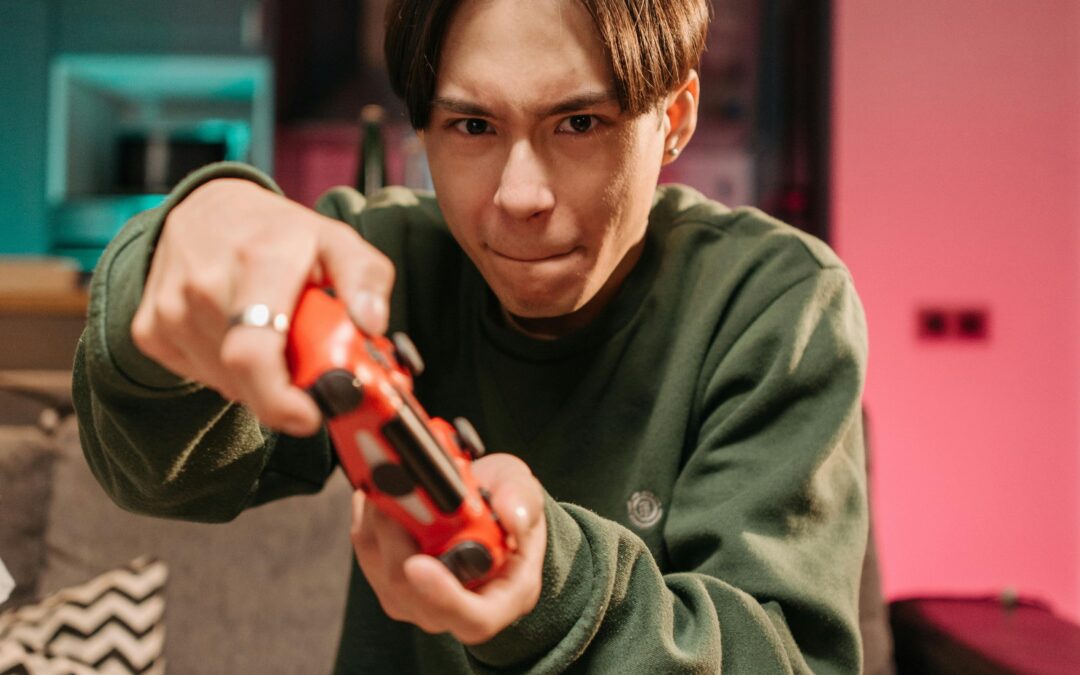Take a moment to reflect on your child’s current behavior. Are they constantly arguing, refusing chores, or falling behind in school? Are they speaking to you with disrespect, raising their voice, or using inappropriate language? Maybe they’re playing video games far longer than allowed, even late into the night, and reacting with tantrums or rage when asked to stop.
Does their behavior remind you more of a much younger child—even though they’re older, possibly even an adult? This emotional immaturity can be a sign that their development has stalled. When the brain is caught in addiction, it becomes focused on reward-seeking and avoiding discomfort, leaving little room to build critical emotional regulation skills.
One study showed that young adults with gaming disorder had lower volumes of gray and white brain matter—linked to poor decision-making, impulse control, and emotional regulation.
And when parents respond to their child’s meltdowns with their own yelling or frustration, it only reinforces the chaos. Both parent and child are now reacting from a place of powerlessness. What your child actually needs in those moments is your calm reassurance, empathy, and guidance—not a power struggle.
In Cyber Sober: A Caregiver’s Guide to Video Gaming Addiction, I asked psychologist Dr. Diane Wetzig to explain how early addictions can delay emotional maturity. She shared this story:
Johnny and Mary both start kindergarten. After the first day, Johnny tells his mom he was scared and overwhelmed. She gives him a “happy pill” to feel better.
Mary tells her mom the same thing. Instead, her mom sits down with her and teaches some simple coping strategies. Over time, they continue checking in and building those skills together.
Johnny, meanwhile, learns to rely on the pill to avoid discomfort. His emotional development stalls. Mary, on the other hand, practices handling tough emotions and grows in resilience.
For many young people today, video games are the “happy pill.”
If your child is using gaming to avoid school, socializing, hygiene, or chores—and reacts with explosive emotions—it’s no wonder you’re confused. You see them physically as their age, but their behavior reflects a much younger emotional state.
I often hear from parents: “Why aren’t they acting their age?” The truth is, if a teen is emotionally functioning at the level of a younger child, we must parent accordingly.
If your 17-year-old is acting like a 12-year-old, then they still need the structure, boundaries, and support of a 12-year-old. This is not the time to back off and offer more freedom—they’re simply not ready to manage it.
But here’s the good news: you’re not powerless. With understanding and consistency, you can help guide your child back toward maturity.
Here’s how:
- Stay calm. Your child needs you to model emotional control, especially in tough moments.
- Use empathetic language. Say things like, “I can see this is hard for you,” or “You’re feeling really frustrated right now.”
- Be gentle but firm. Set clear rules and boundaries without aggression. Assertiveness means staying calm and consistent—not overpowering.
- Follow through on consequences. This builds predictability and helps your child feel safe and secure.
- Encourage problem-solving. Don’t rush in to fix everything. Let them struggle a little, think critically, and build confidence.
- Resist the “happy pill.” Whether it’s screen time or constant soothing, don’t let them escape discomfort. Let them learn to face it.
- Be a sounding board. Listen without judgment. Help them reflect and explore their options rather than handing out answers.
If you’re unsure how to begin, consider reaching out to a therapist or coach for support. You’re not alone, and guidance is available.
With time, patience, and commitment, your child can catch up emotionally—and their need to use gaming as an escape may fade, replaced by healthier coping strategies and a stronger sense of self.
Citation
https://www.newportacademy.com/resources/treatment/teenage-video-game-addiction/


